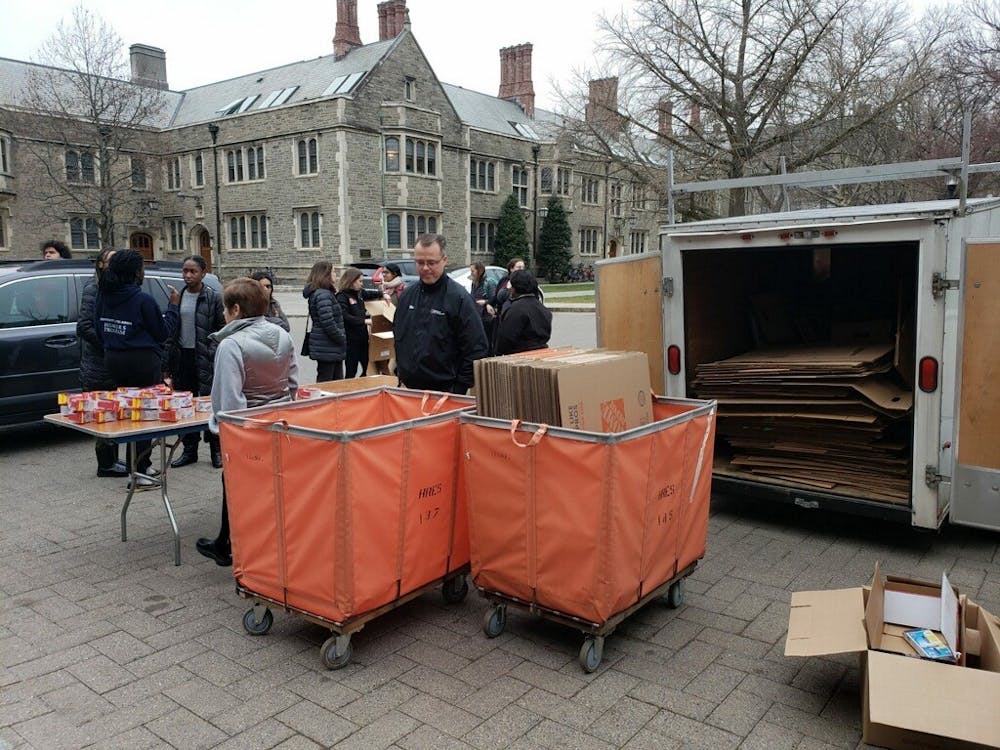Just before midnight in early March, campus erupted in confusion and dismay as the University accidentally updated their website to alert students that classes would be moving online due to the COVID-19 pandemic. After taking down the information, without confirming whether such plans would be put into place until the next day, the University proceeded to contradict itself and bungle communication about both COVID-19 policy and grading changes in the following weeks, creating a prolonged atmosphere of uncertainty and chaos.
In an email obtained by The Daily Princetonian to faculty members advising seniors in the Neuroscience Department, co-directors of the Princeton Neuroscience Institute Jonathan Cohen and David Tank wrote that “The Dean of the College is considering the possibility of allowing a limited number of seniors back to campus for the Fall 2020 semester.”
This information, and any other information pertaining to the University’s decision-making process for the fall semester, should not be coming to students by way of an “obtained email.” The University has failed its students in its unwillingness to be transparent about the options it is considering for the fall of 2020. This Board calls on the University to be clear to its students, faculty, and staff about the policies it is considering.
The University’s lack of communication has led to widespread speculation, uncertainty, and anxiety at a time where those things were already in abundance. The University need not add to that chaos with its silence, which forces students to parse together their plans for the fall through rumors and reading tea leaves.
Even today, an email was sent out by Professor James C. Sturm claiming that “All teaching will be online.” The email has already been circulated among campus student groups, only adding to the confusion already exacerbated by the University’s consistent silence.
Other universities have been far clearer in outlining their options to their students and asking for student input. On June 16, Harvard University’s Dean of the Faculty of Arts and Sciences Claudine Gay outlined the three options for campus life in the fall they were considering to faculty, staff, and postdocs. Brown University developed a comprehensive survey of their students weighing options for the fall. In comparison, the University appears to have completely shut out students from any aspect of the decision making process.
The Undergraduate Student Government did create and distribute a survey to the student body at the beginning of the summer. This survey should have never been necessary, as the University is equipped to conduct a far more comprehensive and representative one. A University-distributed survey would allow students to give feedback to the actual policy options the University is considering and give them a snapshot as to what those options are in the first place, instead of the vague weighing of broad hypotheticals.
The University’s minimal efforts to create a dialogue with students merely included a single USG-sponsored Q&A that Dean Dolan and Vice President for Campus Life Calhoun conducted at the end of the semester. Unfortunately, this Q&A is rendered inconsequential by the fact that the University has not followed up with any attempt at dialogue between the administration and students since, despite the fact that the University’s considerations have almost certainly changed since late May.

The University has also offered students an email address where they can voice their thoughts, concerns, and opinions for next semester. This effort seems reminiscent of the switch to pre-approved questions for CPUC meetings. While those emails may be helpful to individual students, communicating in an open, public forum is the best way to demonstrate true transparency.
The University has an obligation to its community to be clear about the options it is considering for the fall semester and beyond. Bringing students into the fold only when a decision is made shirks that obligation.
144TH EDITORIAL BOARD

Chair
Zachariah W. Sippy ’22
Members
Benjamin Ball ’21
Shannon E. Chaffers ’22
Kate Lee ’23
Rachel Kennedy ‘21
Madeleine Marr ’21
Elizabeth Parker ’21
Emma Treadway ’22
Ivy Truong ’21
Cy Watsky ’21
Jonathan A. Ort ’21 recused himself from this editorial.








